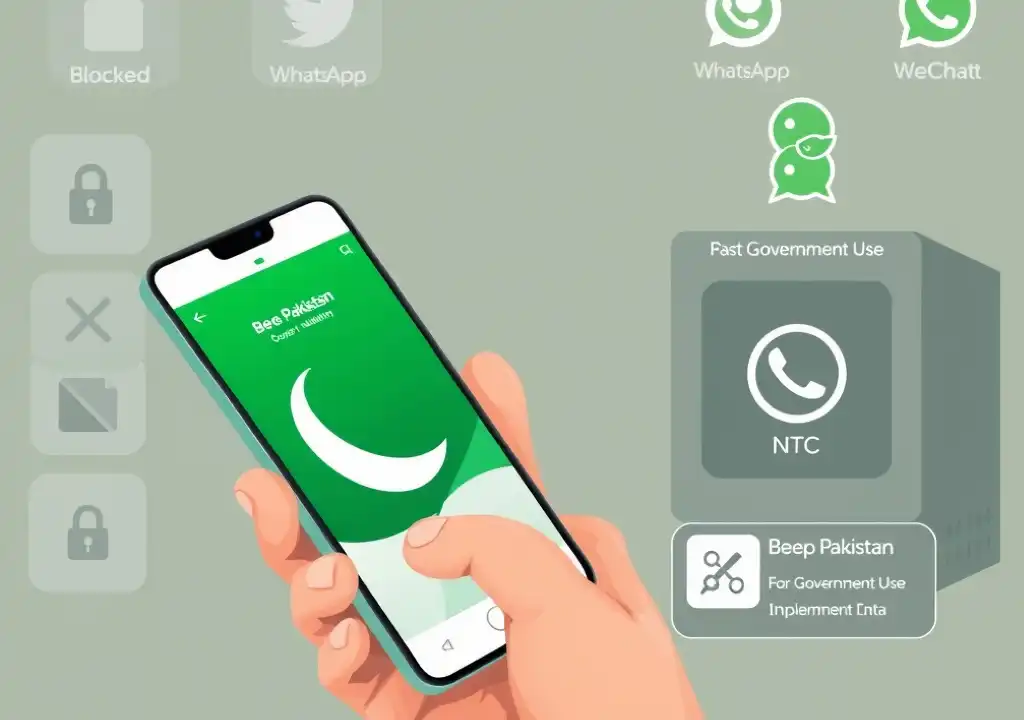Beep Pakistan – a new messaging app developed by the Pakistani government – is set to debut soon, initially serving as a secure communication platform for government officials. Although it bears similarities to global messaging tools, authorities insist it is not intended to compete with WhatsApp.
Shaza Fatima Khwaja, the Minister of State for IT and Telecom, revealed that Beep Pakistan is currently being tested within her ministry before a broader rollout across federal departments. “The focus is secure, unified communication for government use,” she said, highlighting the app’s emphasis on data privacy and protection.
Back in August 2023, former IT Minister Syed Aminul Haque referred to the app as Pakistan’s version of WhatsApp. However, current officials now downplay this comparison. “We’re not trying to rival WhatsApp or any private application,” Khwaja clarified, adding that the app might later be made available to the public.
Response to Internet and Security Concerns
The launch comes amid recurring internet disruptions and security-related restrictions. In February 2024, mobile data was shut down on election day, and the platform X (formerly Twitter) has been blocked since February over alleged security risks. Users have also recently reported issues with multimedia content on WhatsApp. The government, however, attributed these disruptions to global outages.
Concerns around WhatsApp’s data security were intensified in 2019 when reports surfaced that Pakistani officials were targeted using Pegasus spyware. This prompted official advisories against sharing sensitive data on commercial apps and accelerated the development of a national solution.
Beep Pakistan, according to Khwaja, is the answer to those concerns. “This platform will ensure secure internal communications. Its rollout to the public may follow later, but WhatsApp will not be banned,” she stated, calling such speculation “exaggerated.”
Built for Official Use
Babar Majid Bhatti, CEO of the National Information Technology Board (NITB), the body behind the app’s development, echoed similar sentiments. “Beep Pakistan is a government-centric platform with distinct goals from WhatsApp, which is a commercial service,” he explained.
Haque, who initiated the project, said the broader aim is to equip Pakistan with its own domestic communication tool, much like China’s WeChat or WhatsApp in the U.S. “This is a home-grown effort for Pakistan,” he said.
Bhatti confirmed that the app was developed locally with assistance from Pakistani private developers, though he did not reveal the app’s development cost or specific safety features. He did emphasize, however, that the app includes necessary security layers such as encryption.
Data Handling and Privacy Worries
Beep Pakistan’s privacy policy outlines that it will collect device-related information like IP addresses, connection details, and location. All data will be hosted on the servers of the National Telecom Corporation (NTC), the government’s official ICT provider.
The policy assures that data will not be shared or sold and would only be disclosed if legally mandated. Despite this, the NTC has previously faced cyberattacks – including a May 2022 incident that briefly took down government websites – although the core data centers were reportedly unaffected. In 2016, The Intercept reported that U.S. intelligence had accessed NTC servers to spy on Pakistani leadership.
Digital rights advocates remain cautious. Ramsha Jahangir, a digital rights researcher, warned that government-run apps pose a risk of exposing sensitive data. “Beep’s policy says it may collect links to social media and personal info – how secure is that really?” she questioned.
A Cautious Path Forward
Experts draw parallels with other countries’ attempts at homegrown tech. India’s Koo app, a government-endorsed alternative to X, shut down in 2024 due to funding shortages despite initial momentum.
Jahangir noted that such efforts require sustained technical resources and trust. “Local tech should empower users, not enhance government control,” she emphasized.
Beep Pakistan represents a cautious but determined step toward digital sovereignty. Whether it will achieve broad public adoption, however, remains to be seen.

